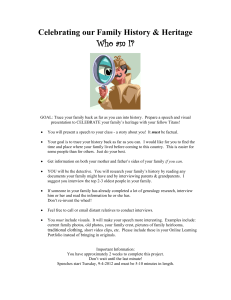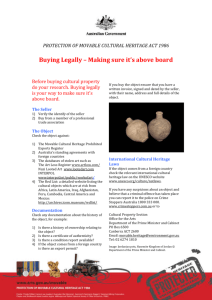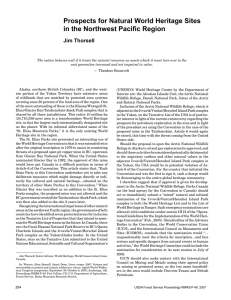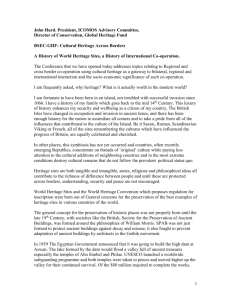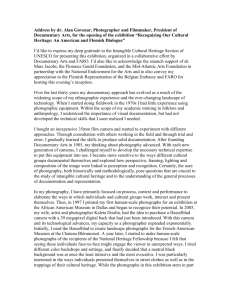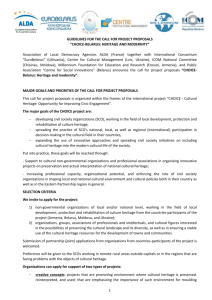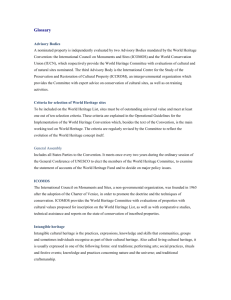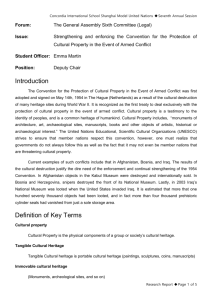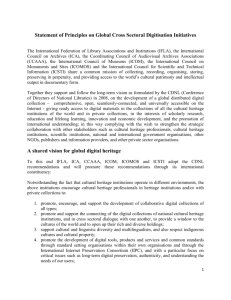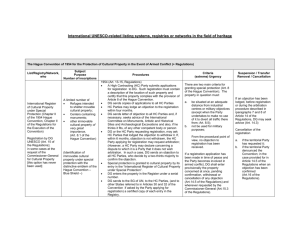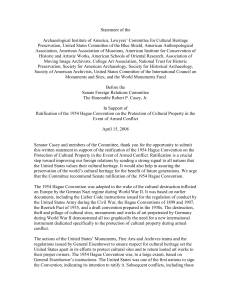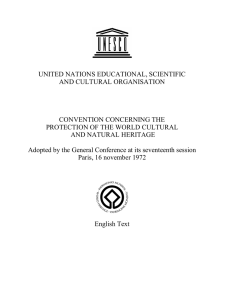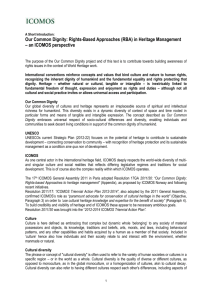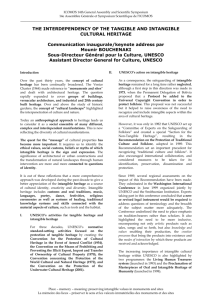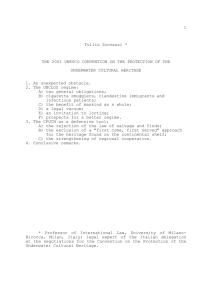REGIONAL CO-OPERATION FOR CULTURAL HERITAGE
advertisement
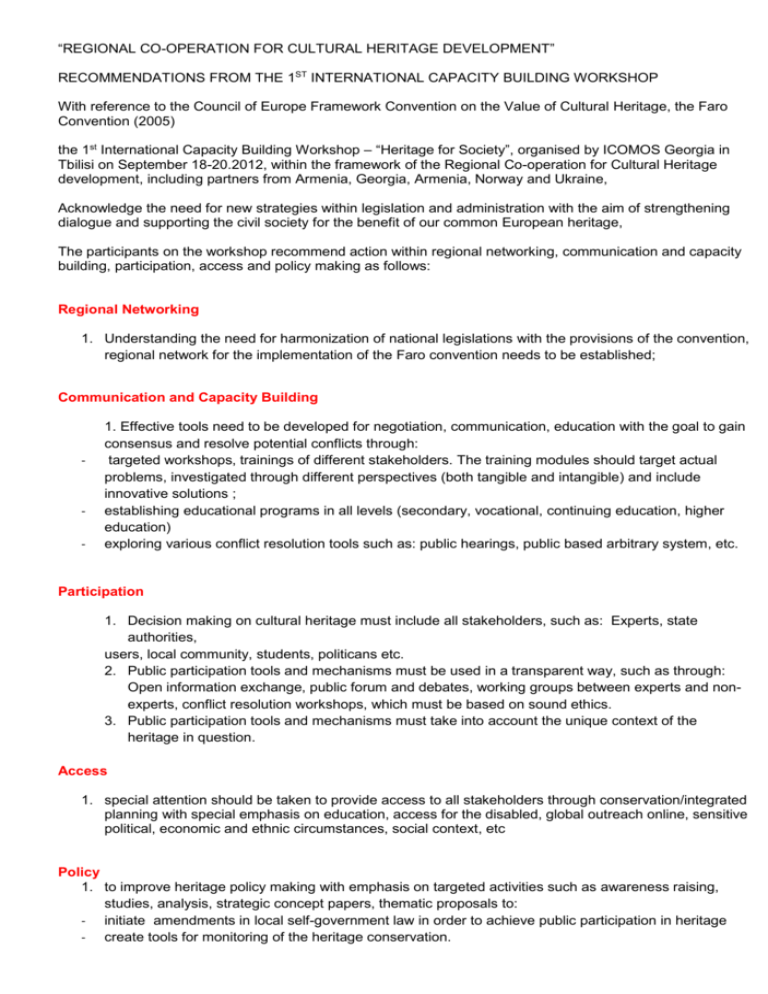
“REGIONAL CO-OPERATION FOR CULTURAL HERITAGE DEVELOPMENT” RECOMMENDATIONS FROM THE 1ST INTERNATIONAL CAPACITY BUILDING WORKSHOP With reference to the Council of Europe Framework Convention on the Value of Cultural Heritage, the Faro Convention (2005) the 1st International Capacity Building Workshop – “Heritage for Society”, organised by ICOMOS Georgia in Tbilisi on September 18-20.2012, within the framework of the Regional Co-operation for Cultural Heritage development, including partners from Armenia, Georgia, Armenia, Norway and Ukraine, Acknowledge the need for new strategies within legislation and administration with the aim of strengthening dialogue and supporting the civil society for the benefit of our common European heritage, The participants on the workshop recommend action within regional networking, communication and capacity building, participation, access and policy making as follows: Regional Networking 1. Understanding the need for harmonization of national legislations with the provisions of the convention, regional network for the implementation of the Faro convention needs to be established; Communication and Capacity Building - - 1. Effective tools need to be developed for negotiation, communication, education with the goal to gain consensus and resolve potential conflicts through: targeted workshops, trainings of different stakeholders. The training modules should target actual problems, investigated through different perspectives (both tangible and intangible) and include innovative solutions ; establishing educational programs in all levels (secondary, vocational, continuing education, higher education) exploring various conflict resolution tools such as: public hearings, public based arbitrary system, etc. Participation 1. Decision making on cultural heritage must include all stakeholders, such as: Experts, state authorities, users, local community, students, politicans etc. 2. Public participation tools and mechanisms must be used in a transparent way, such as through: Open information exchange, public forum and debates, working groups between experts and nonexperts, conflict resolution workshops, which must be based on sound ethics. 3. Public participation tools and mechanisms must take into account the unique context of the heritage in question. Access 1. special attention should be taken to provide access to all stakeholders through conservation/integrated planning with special emphasis on education, access for the disabled, global outreach online, sensitive political, economic and ethnic circumstances, social context, etc Policy 1. to improve heritage policy making with emphasis on targeted activities such as awareness raising, studies, analysis, strategic concept papers, thematic proposals to: - initiate amendments in local self-government law in order to achieve public participation in heritage - create tools for monitoring of the heritage conservation.





